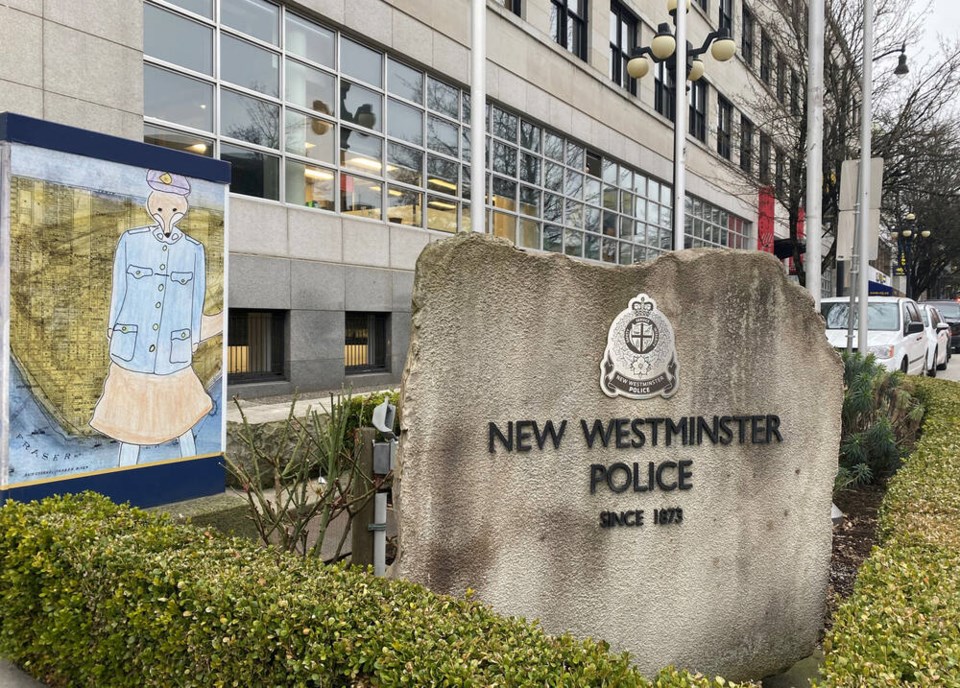The New Westminster Police Department is working on ways to provide culturally safe, equitable policing that upholds human rights.
The department has adopted a new policy on unbiased policing to help ensure it meets new provincial standards for equitable policing.
Deputy Chief Const. Paul Hyland, speaking at a July 25 police board meeting, noted the policy falls in line with multiple initiatives taking place at the provincial level to modernize policing in B.C. — including changes in answer to reports from the Truth and Reconciliation Commission, the National Inquiry into Missing and Murdered Indigenous Women and Girls, and the Declaration on the Rights of Indigenous Peoples.
The department’s senior staff have been reviewing existing policies to make sure they’re compatible with the move towards more equitable policing, he noted, and the new unbiased policing policy provides an overarching framework for those efforts.
“In order to kind of distill what it is we’re doing, we wanted to have an omnibus policy that would spell out what it is that we’re doing, including some policy statements about providing culturally safe response in a trauma-informed manner,” Hyland said. “That’s woven throughout all the policies that we’ve reviewed.”
The unbiased policing policy notes that NWPD employees “have a duty to deliver services impartially and equitably, in a manner that upholds human rights, and without discrimination based on race, national or ethnic origin, colour, religion, age, sex, sexual orientation, marital status, family status, disability, gender identity and expression, political beliefs, types of employment, or economic or social standing.”
What it means: How the new policy applies
The new policy outlines how that philosophy will be applied, in practical terms, to the department’s existing policies and procedures.
Policies in areas such as arrest and release, search, seizure of property and evidence, and street checks will be reviewed every year to ensure they’re consistent with legislative amendments and case law related to equal treatment under the law.
Procedures governing personal searches must also be in line with unbiased policing standards — including direction on handling items of “cultural or religious significance in a culturally sensitive way” and on offering accommodations “in a manner that is responsive to the gender identity or expression of the person being searched.”
The new policy also notes areas of special sensitivity, such as sexual offence investigations, domestic violence investigations, sex work enforcement and mental health intervention.
It also calls for the department to monitor its own work for potential “systemic inequities.”
Under the new policy, the NWPD is charged with analyzing its own records every year, based on disaggregated data on ethnicity and gender. The policy calls for an annual review of at least one type of record — subject behaviour/officer response reports; prisoner booking records; or other records as identified by the police board — to keep an eye out for possible inequities.
Community engagement and promotion of diversity
The unbiased policing policy includes a section on community engagement, which says the department will maintain a community relations component “to liaise, build relationships and ensure communication with community representatives, service providers or advocates reflective of the demographic makeup of the community.”
It outlines that the NWPD will provide information to its employees about the demographic makeup of New Westminster; local First Nations, including their leadership, history, traditions and laws; and key services and resources available through other public and social service agencies.
It calls for the department to conduct a survey of citizen satisfaction at a minimum of every three years.
On an internal basis, it also calls for the department to ensure its hiring, promotion and retention policies are “non-discriminatory, free of systemic barriers and include strategies related to increasing and maintaining diversity in the police force.”
“If policies and procedures fail to consider the diverse needs and experiences of the community, bias, racism and other forms of discrimination can manifest in the acts and decisions of individuals or at a systemic level,” says a report from Hyland to the police board. “Recognizing and taking steps to address this, such as through training, supervision, monitoring, policy development, and community engagement, are critical to promoting unbiased policing.”
Follow Julie MacLellan on Twitter @juliemaclellan.
Email Julie, [email protected]



